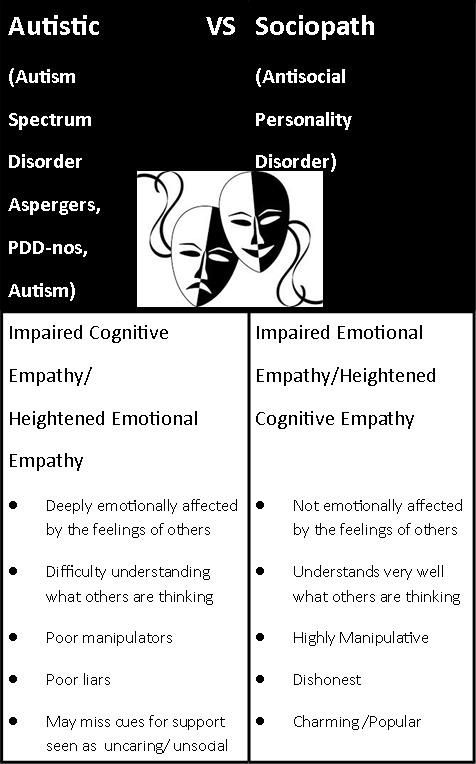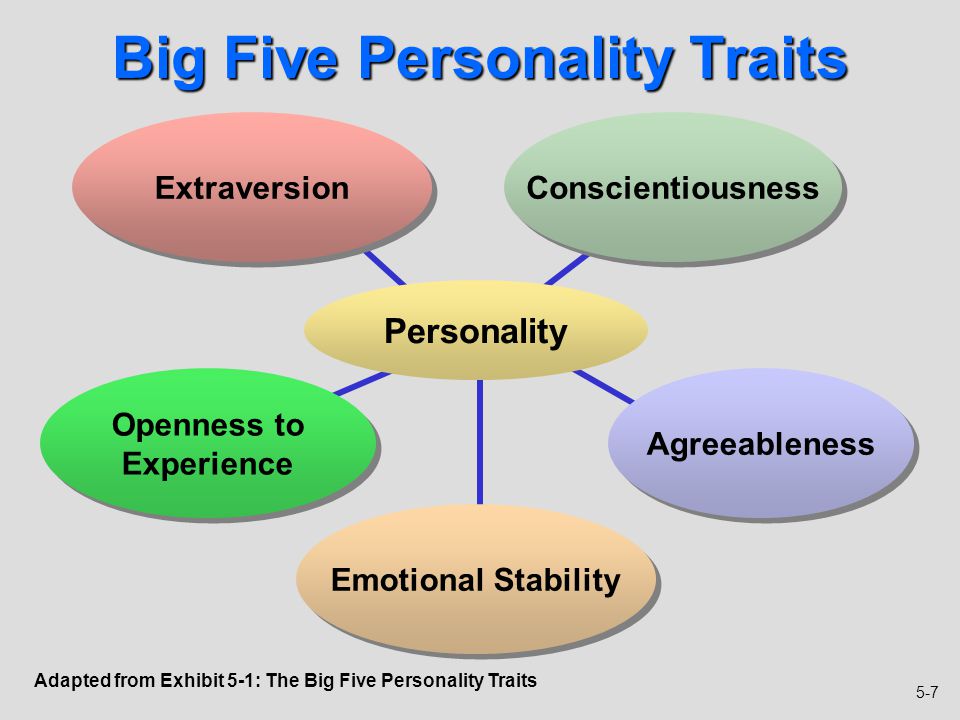Manipulative personality disorder types
Controllers And Abusers In Relationships
Posted by Joseph Carver
An individual with a personality disorder can have a difficult time maintaining socially appropriate interpersonal relationships? In romantic relationships they can be controlling, abusive, manipulative partners who can ruin not only the relationship, but our self-esteem, finances, and reputation.
As a parent, they can put the “D” in Dysfunctional Family and be the parent that abuses, neglects, ignores, or psychologically damages their children.
As a friend they may be irresponsible, selfish, unreliable, dishonest, and often create significant problems in our life.
As a neighbor, they may spread rumors, create disharmony in the neighborhood, and steal our lawnmower.
As a family member, they can maintain themselves as the center of attention and keep the family in an uproar or they may be the 45 year/old brother who has never worked and remains dependent on the family for his support.
They may be the brother or sister who verbally bullies and intimidates others with their temper tantrums.
As a coworker they may be manipulative, unethical, dishonest, and willing to damage co-workers to achieve their employment goals. On the street they can be the criminals, con-artists, and people-users who purposefully damage others then quickly move on to avoid detection.
Further research is needed to better understand the dysfunctional mental state associated with personality disorders in hopes of developing and then offering more effective treatment for individuals in need.
In over three decades of experience of dealing with victims, it’s clear that the majority of emotional victims I see in clinical practice are actually victims of an individual with a “Personality Disorder“.
What Are Personality Disorders?
The “Personality Disorder” has been around for many years. For several centuries, professionals working with all types of people recognized that some individuals clearly thought and acted differently – without “normal” feelings, attitudes, behaviors, and interactions.
In 1835 Dr. Pritchard suggested the term “moral insanity” to reflect the fact that these individuals were not insane by the standards of the day, yet had significant differences in their behavior, attitudes, ethics, morality, emotional expressions, and reactions to situations.
Despite their significant differences when compared to others in their culture, the individual exhibited little emotional or social distress.
Personality Disorders are individuals who have a long history of personality, behavior, emotional, and relationship difficulties.
This group is said to have a “personality disorder” – an enduring pattern of inner experience (mood, attitude, beliefs, values, etc.) and behavior (aggressiveness, instability, etc.) that is significantly different than those in their family or culture.
These dysfunctional patterns are inflexible and intrusive into almost every aspect of the individual’s life.
These patterns create significant problems in personal and emotional functioning and are often so severe that they lead to distress or impairment in all areas of their life. (Source: Diagnostic and Statistical Manual of Mental Disorders, Fifth Edition)
(Source: Diagnostic and Statistical Manual of Mental Disorders, Fifth Edition)
Historically, Personality Disorders are divided into three groups of clusters:
- Cluster A personality disorders are individuals who have odd, eccentric behaviors. Paranoid, Schizoid, and Schizotypal Personalities fall into this cluster.
- Cluster B are personalities that are highly dramatic, both emotionally and behaviorally. Antisocial, Borderline, Narcissistic, and Histrionic Personality are in this group.
- Cluster C are personalities characterized by being anxious and fearful. Avoidant, Dependent, and Obsessive-Compulsive Personality fall into this cluster.
This section went through a revision in the updated version of the DSM-5 with the major change being personality disorders are no longer found coded on Axis-II, as the “Axis” system was causing some confusion for diagnostic measures.
RELATED ARTICLE: Alphabetical List Of Mental Disorders
The Relationship Destroyers – Cluster B
In considering individuals who create the most damage to social and personal relationships, the abusers, manipulators, “players”, controllers, and losers are found in Cluster B.
For this reason, this article will focus on the behaviors associated with Cluster B personality disorders.
In the general population, the largest number of personality disorders fall in the Cluster B group. There are four personality disorders in Cluster B.
Antisocial PersonalityIndividuals exhibit a pervasive pattern of disregard for the rights of others and rules of society.
The Antisocial Personality ranges from individuals who are chronically irresponsible, unsupportive, con-artists to those who have total disregard for the rights of others and commit criminal acts with no remorse, including those involving the death of victims.
In clinical practice, the Antisocial Personality has near-total selfishness and typically has a pattern of legal problems, lying and deception, physical assault and intimidation, no regard for the safety of others, unwillingness for meet normal standards for work/support/parenting, and no remorse.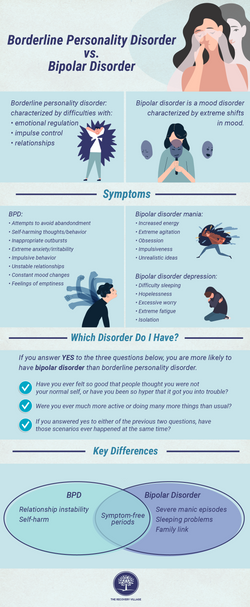
A pervasive pattern of intense yet unstable relationships, mood, and self-perception. Impulse control is severely impaired.
Common characteristics of Borderline Personality include:
- Panic fears of abandonment
- Unstable social relationships
- Unstable self-image
- Impulsive/self-damaging acts such as promiscuity/substance abuse/alcohol use
- Recurrent suicide thoughts/attempts
- Self-injury and self-mutilation
- Chronic feelings of emptiness
- Inappropriate yet intense anger
- Fleeting paranoia
A pervasive pattern of excessive emotional display and attention-seeking. Individuals with this personality are excessively dramatic and are often viewed by the public as the “Queen of drama” type of individual. They are often sexually seductive and highly manipulative in relationships.
Narcissistic PersonalityThey display a pervasive preoccupation with admiration, entitlement, and egotism. Individuals with this personality exaggerate their accomplishments/talents, have a sense of entitlement, lack empathy or concern for others, are preoccupied with envy and jealousy, and have an arrogant attitude.
Individuals with this personality exaggerate their accomplishments/talents, have a sense of entitlement, lack empathy or concern for others, are preoccupied with envy and jealousy, and have an arrogant attitude.
Their sense of entitlement and inflated self-esteem are unrelated to real talent or accomplishments. They feel entitled to special attention, privileges, and consideration in social settings.
This sense of entitlement also produces a feeling that they are entitled to punish those who do not provide their required respect, admiration, or attention.
Identifying Personality Disorders
When encountering the victims of emotional and physical abuse, the Personality Disorder individual is already present in their lives as a mother, father, sibling, spouse, partner, or relative.
The majority of clients with difficulties related to their childhood find a Personality Disorder as a parent. For many, they have found themselves in a romantic relationship or marriage with a Personality Disorder.
Others discover they are working with a Personality Disorder as a co-worker, supervisor, or supervisee. A smaller group finds they are victims of the severe behavior of a Personality Disorder and have been assaulted, robbed, traumatized, or manipulated.
Personality Disorders are present in 10 to 15 percent of the adult population with Cluster B accounting for approximately 9 percent based on research. At such a high percentage, it’s important that we learn to identify these individuals in our lives.
A failure to identify them may create significant risk. While most of our contact with a Personality Disorder may be brief, the more involved they are in our lives, the higher the risk of emotional, social, and other damage. For this reason, it’s helpful to identify some of the characteristics of a personality disorder.
Finding the right care
can be difficult.
We make it easier.
Get Help Today
Core Personality Features Of Cluster B
Mental health professionals have identified ten personality disorders, each with their own pattern of behaviors, emotionality, and symptoms.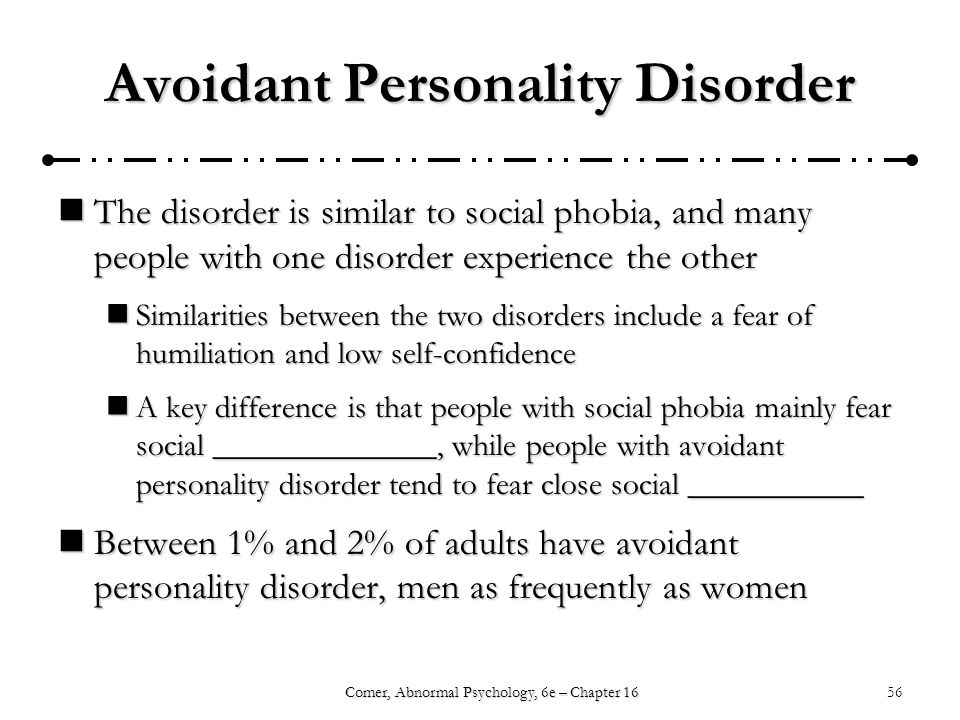
However, in my observation, all Cluster B Personality Disorders have core personality features that serve as the foundation for their specific personality disorder.
1. Self-Centered
We often hear the phrase “It’s All About Me”. When making decisions, a healthy person weighs the needs and concerns of others as well as their own. A Personality Disorder weighs only their needs and concerns.
A Personality Disorder may use money to feed their family for their own purpose. A brother with a Personality Disorder may intimidate an elderly parent for money or manipulate a legal situation to eliminate siblings from an inheritance.
In most situations, if we are contacted by a Personality Disorder, the contact is for THEIR purpose, not ours.
2. Refusal to Accept Personal Responsibility for Their Behavior
Individuals with a Personality Disorder almost never accept personal responsibility for their behavior. They blame others, uses excuses, claim misunderstandings, and then depict themselves as the victim in the situation.
Those that are physically abusive actually blame the victims of their abuse for the assault. Victims often hear “This is your fault! Why did you make me angry?” This aspect of a Personality Disorder is very damaging when the Personality Disorder is a parent.
They blame the children for their abusive, neglectful, or dysfunctional behavior. Children are told they are responsible for the temper tantrums, alcohol/substance abuse, unemployment, poverty, unhappiness, etc. of their parent. During a divorce, a Personality Disorder parent often blames the children.
3. Self-Justification
Individuals with a Personality Disorder don’t think, reason, feel, and behave normally. However, they typically justify ALL of their behaviors. Their justification often comes from their view that they have been victims of society or others and are therefore justified in their manipulative, controlling, criminal or abusive behaviors. A common justification in criminals is to blame the victim for the crime as when hearing “It’s his fault (the victim) that he got shot. He should have given me the money faster.” Healthy adults find it impossible to reason with a Personality Disorder, finding their justifications impossible to understand.
He should have given me the money faster.” Healthy adults find it impossible to reason with a Personality Disorder, finding their justifications impossible to understand.
4. Entitlement
Individuals with a Personality Disorder have a tremendous sense of entitlement, a sense that they deserve respect, money, fame, power, authority, attention, etc.
Some feel they are entitled to be the center of attention and when that doesn’t happen, they are entitled to create a scene or uproar to gain that attention.
Entitlement also creates a justification to punish others in the Personality Disorder. If you violate one of their rules or demands, they feel entitled to punish you in some way.
5. Shallow Emotions
Healthy people are always amazed and astonished that a person with a Personality Disorder can quickly detach from a partner, move on, and exhibit very little in the way of remorse or distress.
A Personality Disorder can find another partner following a breakup, often within days. These same individuals can also quickly detach from their family and children.
These same individuals can also quickly detach from their family and children.
They can become angry with their parents and not contact them for years. A Personality Disorder can abandon their children while blaming the spouse/partner for their lack of support and interest.
Their ability to behave in this manner is related to their “Shallow Emotions”. The best way to think of Shallow Emotions is to have a great $300.00 automobile (192 euros). You have a limited investment in the automobile and when it’s running great you have no complaints.
You take the effort to maintain maintenance on the vehicle as long as the costs are low. If it develops costly mechanical difficulties, it’s cheaper to dispose of it and get another $300.00 automobile that will run well.
Also, if you move a large distance, you leave it behind because it’s more costly to transport it. A Personality Disorder has shallow emotions and often views those around them as $300.00 autos.
Their emotional investment in others is minimal.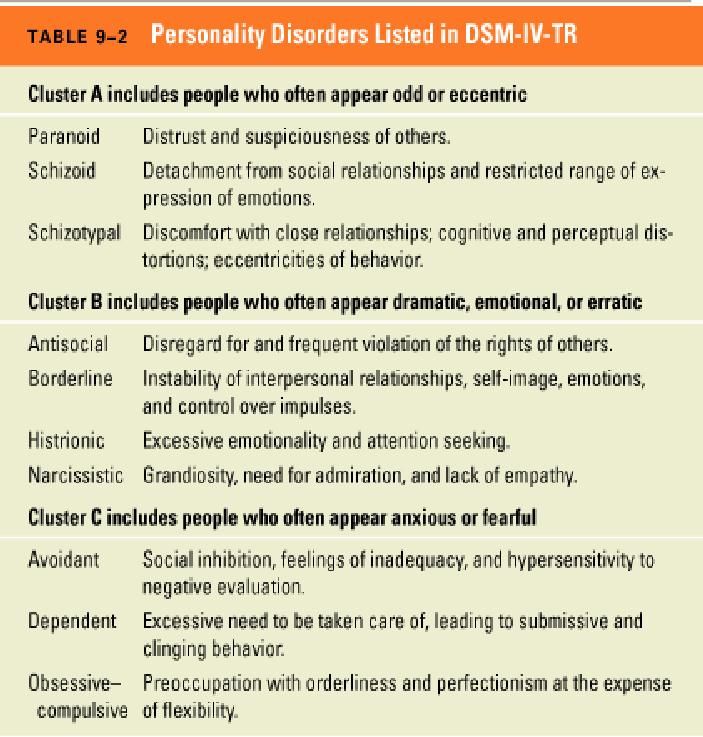 If their partner is too troublesome, they quickly move on. If parents criticize their behavior, they end their relationship with them…until they need something.
If their partner is too troublesome, they quickly move on. If parents criticize their behavior, they end their relationship with them…until they need something.
6. Situational Morality
A Personality Disorder takes pride in being able to “do what I gotta do” to have their demands/needs met. They have few personal or social boundaries and in the severe cases, do not feel bound by laws of the land and quickly engage in criminal activity if needed.
The motto of a Personality Disorder is “the end justifies the means”. Situational morality creates rather extreme behaviors and many Personality Disorders have no hesitation to harm themselves or others to meet their needs.
Activities often seen as manipulative are tools of the trade for a Personality Disorder and include lying, dishonesty, conning behavior, intimidation, scheming, and acting.
Many Personality Disorders are “social chameleons” and after evaluating a potential victim/partner, alter their presentation to be the most effective.
Severe Personality Disorders have no hesitation about self-injury and will cut themselves, overdose, threaten suicide, or otherwise injure themselves with the goal of retaining their partner using guilt and obligation.
7. Narcissism and Ineffective Lives
A Personality Disorder has a strong influence on the life and lifestyle of the individual. Cluster B personality disorders often have two lives – their “real life” and the imaginary life they present to others that is full of excuses, half-truths, deceptions, cons, lies, fantasies, and stories prepared for a specific purpose.
Physical abusers who were forcibly and legal removed from their children and spouse develop a story that the in-laws conspired with the police to separate them from the children they love so deeply.
Jail time is often reinterpreted as “I took the blame for my friend so he could continue to work and support his family”.
A major finding in a Personality Disorder is an ineffective life – reports of tremendous talent and potential but very little in the way of social or occupational success.
It’s a life of excuses and deceptions. Narcissistic and Antisocial “losers” often promise romantic cruises that never take place or have a reason that their partner needs to place an automobile in his/her name.
Their lives are often accompanied by financial irresponsibility, chronic unemployment, legal difficulties, and unstable living situations in the community.
Their behavior often emotionally exhausts those around them – something the Personality Disorder explains with “My family and I have had a falling out.”
We can be assured that no matter what “real life” situation is present in the life of the Personality Disorder, there will be a justification and excuse for it.
8. Social Disruption
There is never a calm, peaceful, and stable relationship with a Cluster B Personality Disorder! Their need to be the center of attention and control those around them assures a near-constant state of drama, turmoil, discord, and distress.
An individual with a Personality Disorder creates drama and turmoil in almost every social situation. Holidays, family reunions, outings in the community, travel, and even grocery shopping are often turned into a social nightmare.
Holidays, family reunions, outings in the community, travel, and even grocery shopping are often turned into a social nightmare.
The Personality Disorder also creates disruption in their family system. They are the focus of feuds, grudges, bad feelings, jealousy, and turmoil. If you have a member of your family that you hate to see arrive at a family reunion or holiday dinner – he or she probably has a Personality Disorder.
9. Manipulation As A Way of Life
To obtain our daily personal, social, and emotional needs a healthy individual has a variety of strategies to use including taking personal action, politely asking someone, making deals, being honest, etc.
Healthy individuals also use manipulation as one of many social skills – buying someone a gift to cheer them up, making comments and giving hints that something in desired, etc.
For the Personality Disorder, despite the many social strategies available, manipulation is their preferred method of obtaining their wants and needs.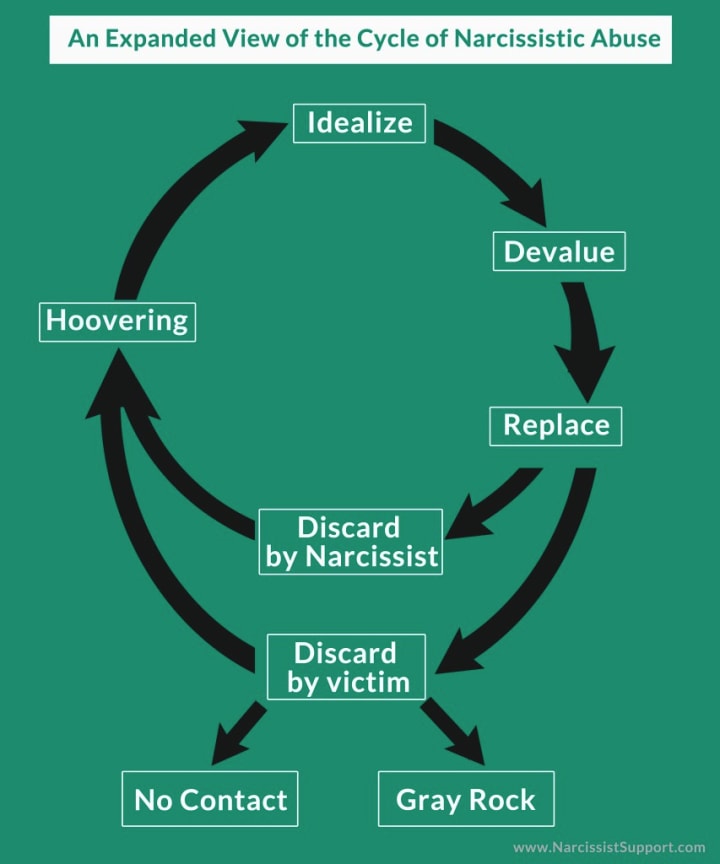
The manipulations of a Personality Disorder – when combined with shallow emotions, entitlement, and being self-centered – can be extreme. To obtain their goals, an Antisocial Personality may physically threaten, harass, intimidate, and assault those around them.
Histrionic Personalities may create dramatic situations, threaten self-harm, or create social embarrassment. Narcissistic Personalities may send police and an ambulance to your home if you don’t answer their phone calls, using the excuse that they were concerned about you.
Their real goal is to assure you that their phone calls MUST be answered or you will pay the consequences. Borderline Personalities may self-injure in your physical presence.
In a relationship with a Personality Disorder we are constantly faced with a collection of schemes, situations, manipulations, and interactions that have a hidden agenda…their agenda.
10. The Talk and Behavior Gap
We know how people are by two samples of their personality – their talk and their behavior. A person who is honest has talk/conversation/promises that match their behavior almost 100%.
A person who is honest has talk/conversation/promises that match their behavior almost 100%.
If he/she borrows money and tells you they will repay you Friday, and then pays you Friday, you have an honest person. When we observe these matches frequently, then we can give more trust to that individual in the future.
The wider the gap between what a person says/promises and what they do – the more they are considered dishonest, unreliable, irresponsible, etc. Due to the shallow emotions and situational morality often found in a Personality Disorder, the gap between talk and behavior can be very wide.
A Personality Disorder can often assure their spouse that they love them while having an extramarital affair, borrow money with no intention of paying it back, promise anything with no intention of fulfilling that promise, and assure you of their friendship while spreading nasty rumors about you.
A rule: Judge a person by their behavior more than their talk or promises.
11. Dysfunctional Parents
Individuals with a Personality Disorder are frequently parents. However, they are frequently dysfunctional parents. Personality Disorder parents often see their children as a burden to their personal goals, are often jealous of the attention their children receive, often feel competitive with their older children, and often attempt to obtain their personal goals through their children.
Personality Disorder parents control their children through manipulation with little concern for how their parenting behavior will later influence the lives or the personality of the child.
Personality Disorder parents are often hypercritical, leaving the child with the feeling that they are incompetent or unworthy. In extreme cases, Antisocial parents criminally neglect, abuse, or exploit their children – often teaching them to become criminals.
Criminal parents often use their children to steal or carry drugs to avoid criminal charges as an adult, allowing the children to face the legal charges.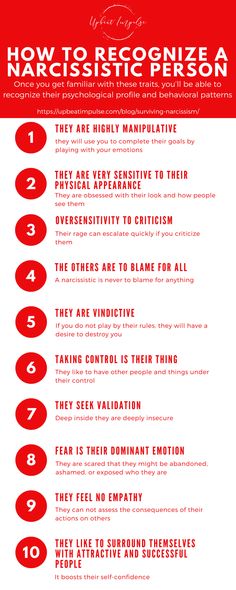
Spouses with a Personality Disorder are often jealous of the attention their partner provides to children in the home, frequently targeting the child for verbal abuse in their jealousy.
The narcissism and shallow emotions in a Personality Disorder parent leave the children feeling unloved, unwanted, unworthy, and unappreciated.
Unconscious Or Calculated Behavior?
When we look at the emotions, attitudes and behaviors of an individual with a Personality Disorder we eventually begin to question: Are these characteristics calculated and purposeful or are they unconscious behaviors that are not under their control?
In working with Personality Disorders, we see both.
In Attitudes
The majority of the attitudes we seen in Personality Disorders are very long-standing and have been present since their teen years.
Blaming others is a classic personality disorder feature and after believing this for many years, people with a Personality Disorder may not truly feel they are responsible for their behavior – even their criminal behavior.
They have rethought, reworked, and excused their behaviors to the point that they fail to see that they are the common denominator in all their difficulties. Convicted criminals, with crimes ranging from auto theft to homicide, all have a similar attitude – “Incarceration is unfair”.
They don’t factor victims into their crimes in any way. For this reason, those with a Personality Disorder have very little understanding and insight into their attitudes that ruin relationships.
Victims will assure you that trying to explain a normal, healthy position to an individual with a Personality Disorder is almost impossible.
Impaired Relationships
In a Personality Disorder, over many years the individual develops impaired ways of relating to others. These impaired ways of relating eventually become their only way of relating to others.
Beginning in their childhood, as an adult they now only know how to relate to others with intimidation, threat, anger, manipulation, and dishonesty.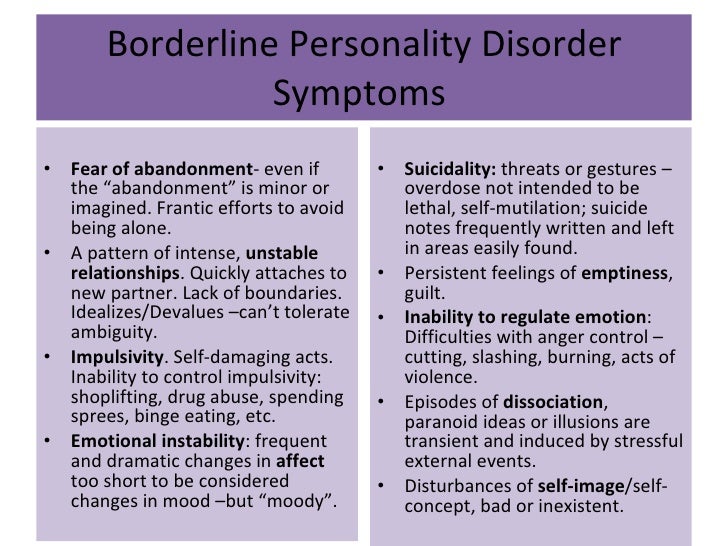
This defective social style continues, even when those around them are socially skilled, concerned, accepting, and loving.
Situational Behavior
Justifying their behavior with these long-standing attitudes, individuals with a Personality Disorder can be very calculated, purposeful, and manipulative in their behavior toward others.
Their decision making, coping strategies, and manipulations are often well-planned to meet their agenda. Financially, many will purposefully legally obligate you to pay for their debts.
They may steal money from you, justifying that behavior with “I cut the grass for three years – I deserve it.” It is this combination of long-standing attitudes and calculated behavior that makes a Personality Disorder dangerous in any interpersonal relationship.
What Does This Mean For The Victims?
In a relationship with a Personality Disorder, several basic truths are present.
These include:
- The victim in a relationship with a Personality Disorder did not create the Personality Disorder.
 Many Personality Disorders blame the victim for their assaults, lies, bad behavior, deceptions, intimidations, etc. In truth, the Personality Disorder has those behaviors if the victim is present or absent. Victims don’t cause themselves to be assaulted – they are involved with an abusive and assaultive individual.
Many Personality Disorders blame the victim for their assaults, lies, bad behavior, deceptions, intimidations, etc. In truth, the Personality Disorder has those behaviors if the victim is present or absent. Victims don’t cause themselves to be assaulted – they are involved with an abusive and assaultive individual. - Changing the behavior of the victim does not change the behavior of the Personality Disorder. Many victims become superstitious and feel that they can control the behavior of the Personality Disorder in their life by changing their behavior. This is often a temporary fix, meaning only that you are now meeting the demands of the Personality Disorder. When the Personality Disorder feels justified, they return to their behavior with no concern for changes in the behavior of the victim. Loving sharks doesn’t protect us if we find ourselves dripping blood in a shark tank.
- A Personality Disorder is a permanent, long-standing pattern. Time doesn’t change these personalities.
 If your mother or father had a personality disorder in your childhood, returning home after twenty years will find their old behavior alive and well.
If your mother or father had a personality disorder in your childhood, returning home after twenty years will find their old behavior alive and well. - Marrying, having a baby with, moving in with, etc. actually makes their dysfunctional behavior worse. The presence of stress exaggerates and amplifies our normal personality characteristics. Mentally healthy yet shy individuals become shyer under stress. The stress of additional responsibilities actually increases the bad behavior of a Personality Disorder.
- When involved in any manner with a Personality Disorder – as their partner, parent, child, sibling, friend, etc. – we must not only recognize their behaviors but develop a strategy to protect ourselves. Many of our strategies must focus on protecting our emotional stability, our finances, and our other relationships. As a parent, if our adult son or daughter has a Personality Disorder, we must protect ourselves from their behaviors that might jeopardize our lifestyle and life.
 As the child of a parent with a Personality Disorder, we must often protect our immediate family and children from the bad behavior of our parent. It’s important to remember that with a Personality Disorder – THEIR survival and well-being is their priority – not the health or well-being of those around them.
As the child of a parent with a Personality Disorder, we must often protect our immediate family and children from the bad behavior of our parent. It’s important to remember that with a Personality Disorder – THEIR survival and well-being is their priority – not the health or well-being of those around them.
Summary
As we go through life, we encounter a variety of individuals. We also develop a variety of relationships with others including family members, neighbors, fellow workers, friends, and familiar faces.
Healthy relationships seem to be healthy in the same way – having characteristics of respect, concern for others, affection, cooperation, honesty, mutual goals, etc.
A relationship with a Personality Disorder is totally different. That 9 or 10 percent of adults with a “Cluster B” Personality Disorder can create significant difficulties in our life.
In brief contacts they are often troublesome – the uncle who is a con artist or the sister-in-law that nobody can tolerate at holiday dinners.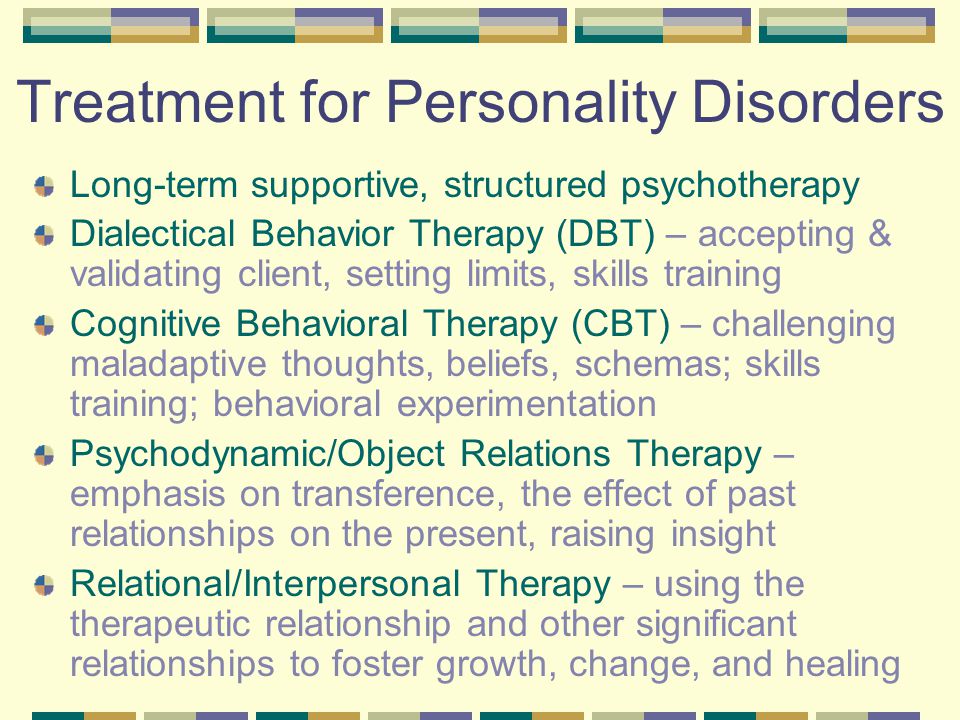 When we bring them into our lives however, a Personality Disorder rapidly takes over and our life becomes centered on their needs, demands, and goals.
When we bring them into our lives however, a Personality Disorder rapidly takes over and our life becomes centered on their needs, demands, and goals.
To achieve their self-centered objectives, the Personality Disorder becomes the controller, abuser, manipulator and user in relationships. The early identification of individuals who create unhealthy relationships can save us from years of heartache as well as damage to our personality, self-esteem, finances, and lifestyle.
I have also addressed the issues associated with remaining in an abusive or dysfunctional relationship in an article entitled “Love and Stockholm Syndrome: The Mystery of Loving an Abuser”. Both articles are available on my website at www.drjoecarver.com or at www.counsellingresource.com
Joseph M Carver, Ph.D.
Psychologist
References:
American Psychiatric Association. (2013). Anxiety Disorders. In Diagnostic and statistical manual of mental disorders (5th ed.).
https://doi.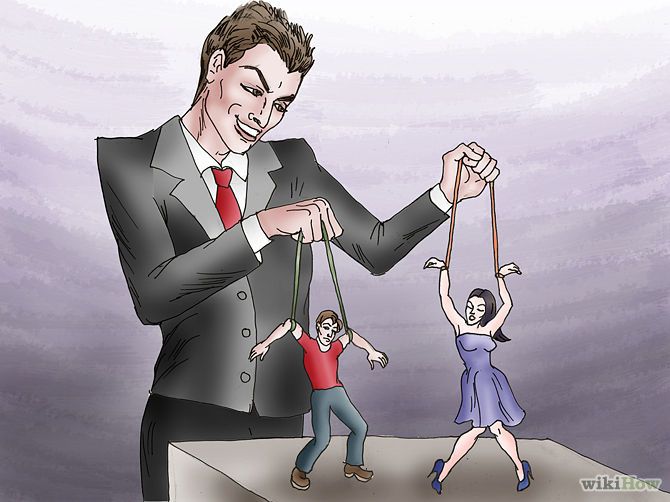 org/10.1176/appi.books.9780890425596.dsm05
org/10.1176/appi.books.9780890425596.dsm05
Dimaggio, G., & Brüne, M. (2016). Dysfunctional understanding of mental states in personality disorders: What is the evidence? Comprehensive Psychiatry, 64, 1–3. https://doi.org/10.1016/j.comppsych.2015.09.014
DSM-5: The Ten Personality Disorders: Cluster B
- Antisocial Personality Disorder
- Histrionic Personality Disorder
- Narcissistic Personality Disorder
- Borderline Personality Disorder
Cluster B is called the dramatic, emotional, and erratic cluster. It includes:
- Borderline Personality Disorder.
- Narcissistic Personality Disorder.
- Histrionic Personality Disorder.
- Antisocial Personality Disorder.
Disorders in this cluster share problems with impulse control and emotional regulation.
The Antisocial Personality Disorder* is characterized by a pervasive pattern of disregard for the rights of other people that often manifests as hostility and/or aggression. Deceit and manipulation are also central features.
Deceit and manipulation are also central features.
In many cases hostile-aggressive and deceitful behaviors may first appear during childhood.
- These children may hurt or torment animals or people.
- They may engage in hostile acts such as bullying or intimidating others.
- They may have a reckless disregard for property such as setting fires.
- They often engage in deceit, theft, and other serious violations of standard rules of conduct.
- When this is the case, Conduct Disorder (a juvenile form of Antisocial Personality Disorder) may be an appropriate diagnosis.
- Conduct Disorder is often considered the precursor to an Antisocial Personality Disorder.
In addition to reckless disregard for others, they often place themselves in dangerous or risky situations.
They frequently act on impulsive urges without considering the consequences. This difficulty with impulse control results in loss of employment, accidents, legal difficulties, and incarceration.
This difficulty with impulse control results in loss of employment, accidents, legal difficulties, and incarceration.
Persons with Antisocial Personality Disorder typically do not experience genuine remorse for the harm they cause others. However, they can become quite adept at feigning remorse when it is in their best interest to do so (such as when standing before a judge).
They take little to no responsibility for their actions. In fact, they will often blame their victims for "causing" their wrong actions, or deserving of their fate. The aggressive features of this personality disorder make it stand out among other personality disorders as individuals with this disorder take a unique toll on society.
Histrionic Personality Disorder
Persons with Histrionic Personality Disorder* are characterized by a pattern of excessive emotionality and attention seeking.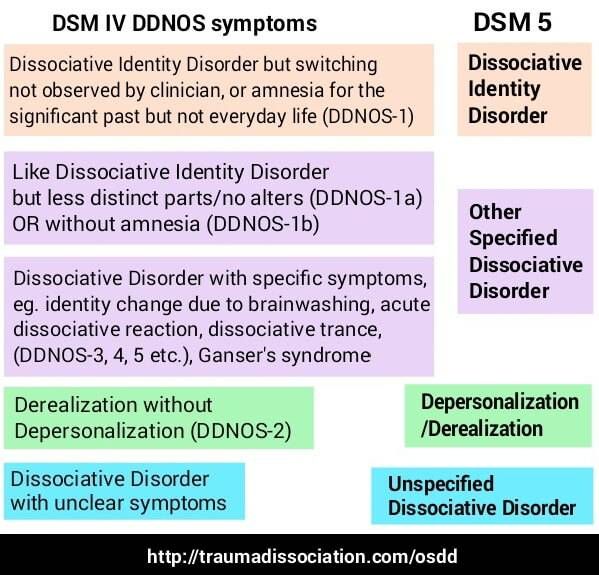 Their lives are full of drama (so-called "drama queens"). They are uncomfortable in situations where they are not the center of attention.
Their lives are full of drama (so-called "drama queens"). They are uncomfortable in situations where they are not the center of attention.
- People with this disorder are often quite flirtatious or seductive, and like to dress in a manner that draws attention to them.
- They can be flamboyant and theatrical, exhibiting an exaggerated degree of emotional expression.
- Yet simultaneously, their emotional expression is vague, shallow, and lacking in detail. This gives them the appearance of being disingenuous and insincere.
- Moreover, the drama and exaggerated emotional expression often embarrasses friends and acquaintances as they may embrace even casual acquaintances with excessive ardor, or may sob uncontrollably over some minor sentimentality.
People with Histrionic Personality Disorder can appear flighty and fickle.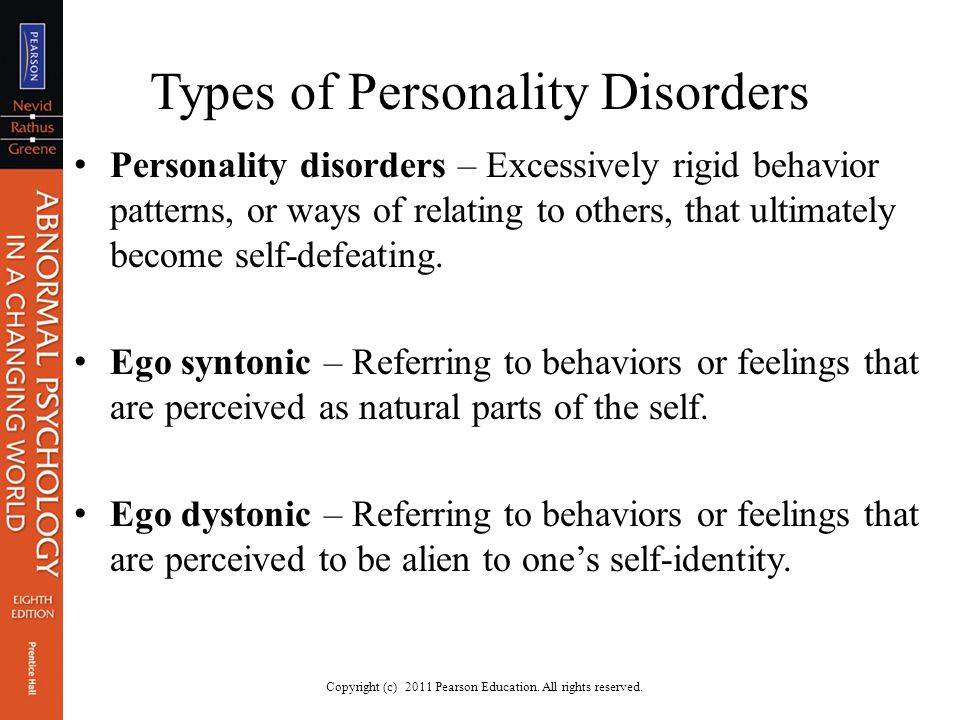 Their behavioral style often gets in the way of truly intimate relationships, but it is also the case that they are uncomfortable being alone.
Their behavioral style often gets in the way of truly intimate relationships, but it is also the case that they are uncomfortable being alone.
They tend to feel depressed when they are not the center of attention. When they are in relationships, they often imagine relationships to be more intimate in nature than they actually are.
People with Histrionic Personality Disorder tend to be suggestible; that is, they are easily influenced by other people's suggestions and opinions. A literary character that exemplifies the Histrionic Personality Disorder is the character of Blanche DuBois in Tennessee William's classic play, "Streetcar Named Desire."
Narcissistic Personality Disorder
People with Narcissistic Personality Disorder* have significant problems with their sense of self-worth stemming from a powerful sense of entitlement. This leads them to believe they deserve special treatment, and to assume they have special powers, are uniquely talented, or that they are especially brilliant or attractive.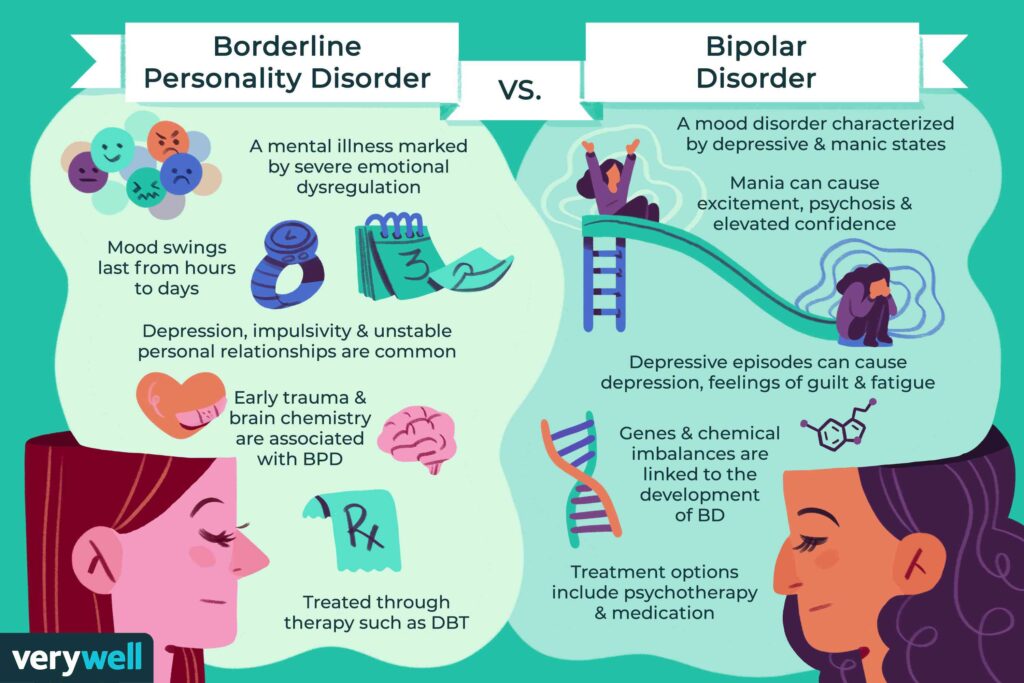 Their sense of entitlement can lead them to act in ways that fundamentally disregard and disrespect the worth of those around them.
Their sense of entitlement can lead them to act in ways that fundamentally disregard and disrespect the worth of those around them.
- People with Narcissistic Personality Disorder are preoccupied with fantasies of unlimited success and power, so much so that they might end up getting lost in their daydreams while they
fantasize about their superior intelligence or stunning beauty. - These people can get so caught up in their fantasies that they don't put any effort into their daily life and don't direct their energies toward accomplishing their goals.
- They may believe that they are special and deserve special treatment, and may display an attitude that is arrogant and haughty.
- This can create a lot of conflict with other people who feel exploited and who dislike being treated in a condescending fashion.
- People with Narcissistic Personality Disorder often feel devastated when they realize that they have normal, average human limitations; that they are not as special as they think, or that others don't admire them as much as they would like.
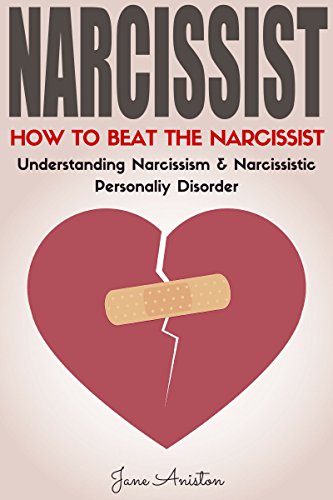
- These realizations are often accompanied by feelings of intense anger or shame that they sometimes take out on other people.
- Their need to be powerful, and admired, coupled with a lack of empathy for others, makes for conflictual relationships that are often superficial and devoid of real intimacy and caring.
Status is very important to people with Narcissistic Personality Disorder. Associating with famous and special people provides them a sense of importance. These individuals can quickly shift from over-idealizing others to devaluing them.
However, the same is true of their self-judgments. They tend to vacillate between feeling like they have unlimited abilities, and then feeling deflated, worthless, and devastated when they encounter their normal, average human limitations. Despite their bravado, people with Narcissistic Personality Disorder require a lot of admiration from other people in order to bolster their own fragile self-esteem. They can be quite manipulative in extracting the necessary attention from those people around them.
They can be quite manipulative in extracting the necessary attention from those people around them.
Borderline Personality Disorder
Borderline Personality Disorder* is one of the most widely studied personality disorders. People with Borderline Personality Disorder tend to experience intense and unstable emotions and moods that can shift fairly quickly. They generally have a hard time calming down once they have become upset. As a result, they frequently have angry outbursts and engage in impulsive behaviors such as substance abuse, risky sexual liaisons, self-injury, overspending, or binge eating. These behaviors often function to sooth them in the short-term, but harm them in the longer term.
- People with Borderline Personality Disorder tend to see the world in polarized, over-simplified, all-or-nothing terms.
- They apply their harsh either/or judgments to others and to themselves and their perceptions of themselves and others may quickly vacillate back and forth between "all good" and "all bad.
 "
" - This tendency leads to an unstable sense of self, so that persons with this disorder tend to have a hard time being consistent.
- They can frequently change careers, relationships, life goals, or residences. Quite often these radical changes occur without any warning or advance preparation.
Black-and-White Thinking and Emotion Dysregulation in Borderline Personality Disorder
People with Borderline Personality Disorder tend to view the world in terms of black-and-white, or all-or-nothing thinking. Their tendency to see the world in black-or-white (polarized) terms makes it easy for them to misinterpret the actions and motivations of others.
- These polarized thoughts about their relationships with others lead them to experience intense emotional reactions, which in turn interacts with their difficulties in regulating these intense emotions.
- The result is that they will characteristically experience great distress which they cannot easily control and may subsequently engage in self-destructive behaviors as they do their best to cope.

- The intensity of their emotions, coupled with their difficulty regulating these emotions, leads them to act impulsively.
To illustrate the way black-and-white thinking, emotional dys-regulation, and poor impulse regulation all merge and culminate to create interpersonal conflict and distress, let's use an example:
Suppose the partner of a woman with Borderline Personality Disorder fails to remember their anniversary. Black-and-white thinking causes her to conclude, "He doesn't love me anymore" and all-or-nothing thinking leads her to (falsely) conclude, "If he does not love me, then he must hate me."
Such thoughts would easily lead to some pretty intense emotions, such as feeling rejected, abandoned, sad, and angry. She has a hard time tolerating and dealing with these intense feelings and consequently becomes highly upset and overwhelmed. The intensity of her negative feelings seems unbearable.
Next she has a powerful impulse to "do something" just so that these feelings will go away.
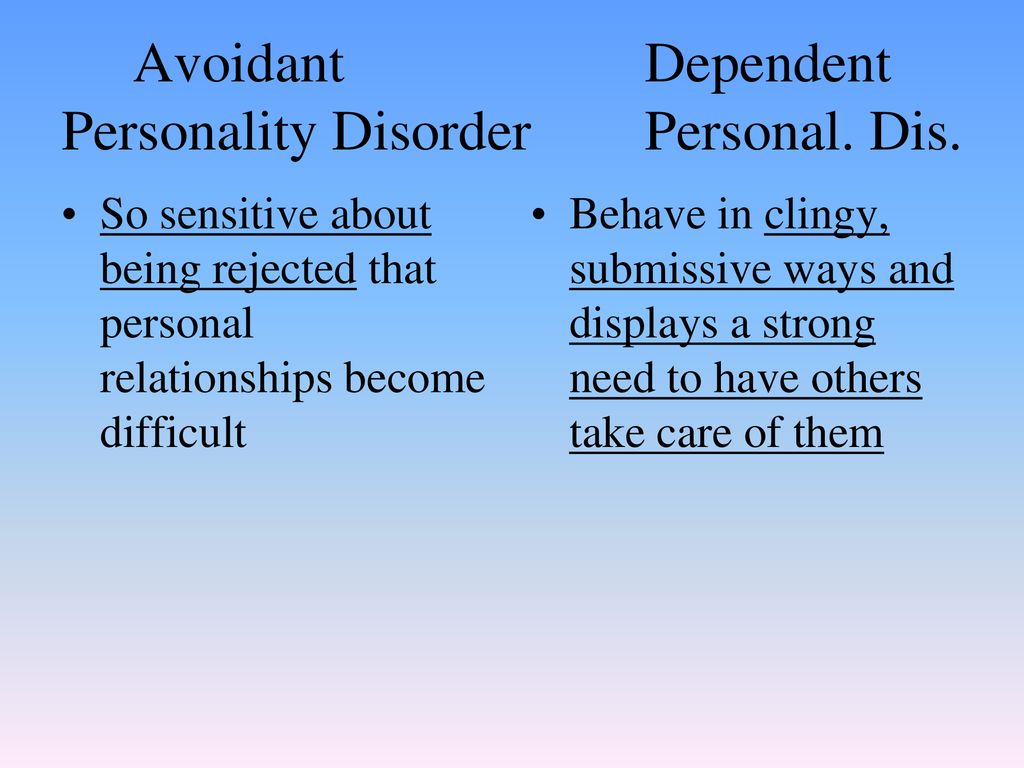 She might angrily accuse her partner of having an affair and she might plead with her partner not to leave her.
She might angrily accuse her partner of having an affair and she might plead with her partner not to leave her.Meanwhile her partner is baffled by this extreme reaction, particularly since he is not having an affair, and he readily recalls all his other recent loving gestures. Her partner might also become angry at these wild accusations of infidelity and so the conflict escalates and things get more intense.
Alone after the fight, the woman feels overwhelming self-loathing or numbness and goes on to intentionally injure herself (by cutting or burning herself) as a way to cope with her numbness.
When her partner learns about this self-harm behavior he can't understand it and concludes he is being manipulated. He expresses his strong concern for her well-being but also his anger. In turn, she feels misunderstood.
Clearly, the Borderline Personality Disorder with its combination of distorted thought patterns, intense and under-regulated emotions, and poor impulse control is practically designed to wreak havoc on any interpersonal relationship.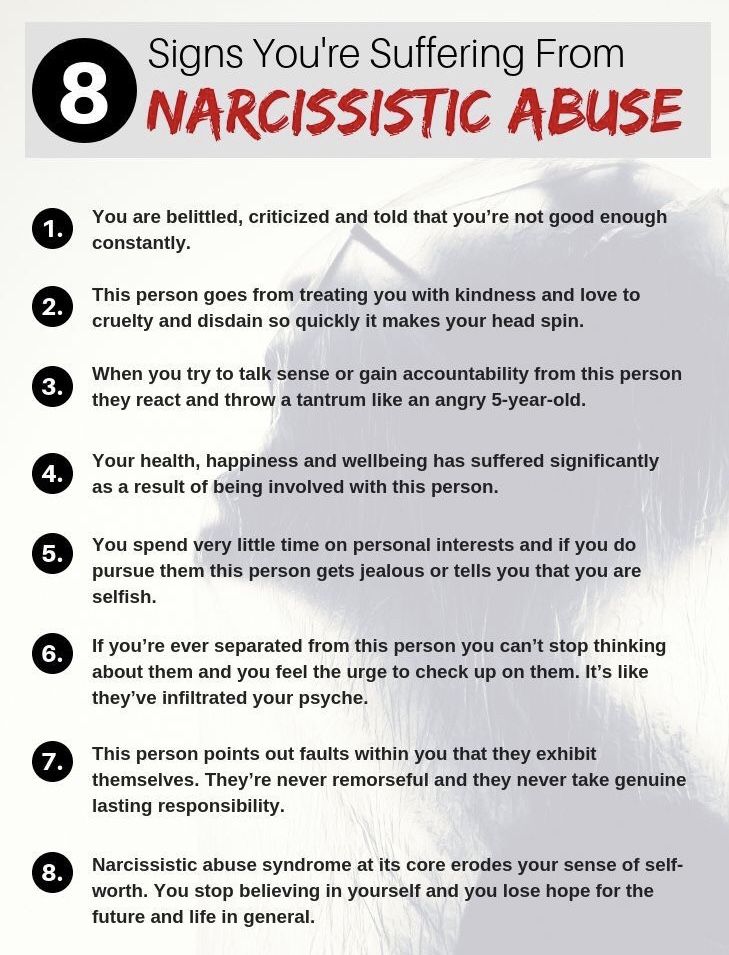
Dialectical Behavior Therapy (DBT) Learn more about Dialectical Behavior Therapy for Borderline Personality Disorder
*It is important to remember that everyone can exhibit some of these personality traits from time to time. To meet the diagnostic requirement of a personality disorder, these traits must be inflexible; i.e., they can be regularly observed without regard to time, place, or circumstance.
Furthermore, these traits must cause functional impairment and/or subjective distress. Functional impairment means these traits interfere with a person's ability to functional well in society. The symptoms cause problems in interpersonal relationships; or at work, school, or home. Subjective distress means the person with a personality disorder may experience their symptoms as unwanted, harmful, painful, embarrassing, or otherwise cause them distress.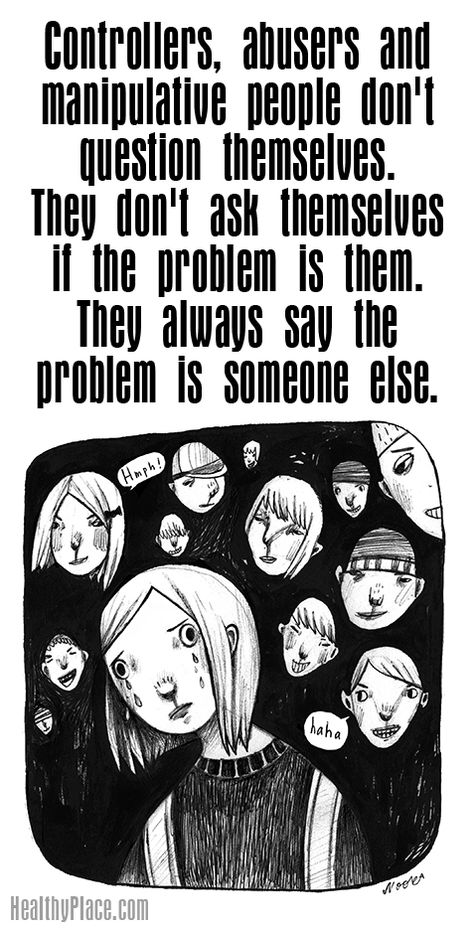 The above list only briefly summarizes these individual Cluster B personality disorders. Richer, more detailed descriptions of these disorders are found in the section describing the four core features of personality disorders.
The above list only briefly summarizes these individual Cluster B personality disorders. Richer, more detailed descriptions of these disorders are found in the section describing the four core features of personality disorders.
What is narcissistic personality disorder, how to recognize it and can it be corrected
The label "narcissist" is often used to refer to people who seem self-confident, spend a lot of time talking about themselves, their success and career. However, this feature is much more complicated than it seems. A sense of confidence, a desire to share our achievements, and a desire for praise are quite adequate traits inherent in many of us. But sometimes it develops into a manic obsession with oneself or narcissism, which greatly interfere with establishing social connections, building a career and maintaining healthy relationships with loved ones. Zaborona journalist Polina Vernigor figured out when to sound the alarm, how to identify narcissistic personality disorder, and how to deal with narcissists.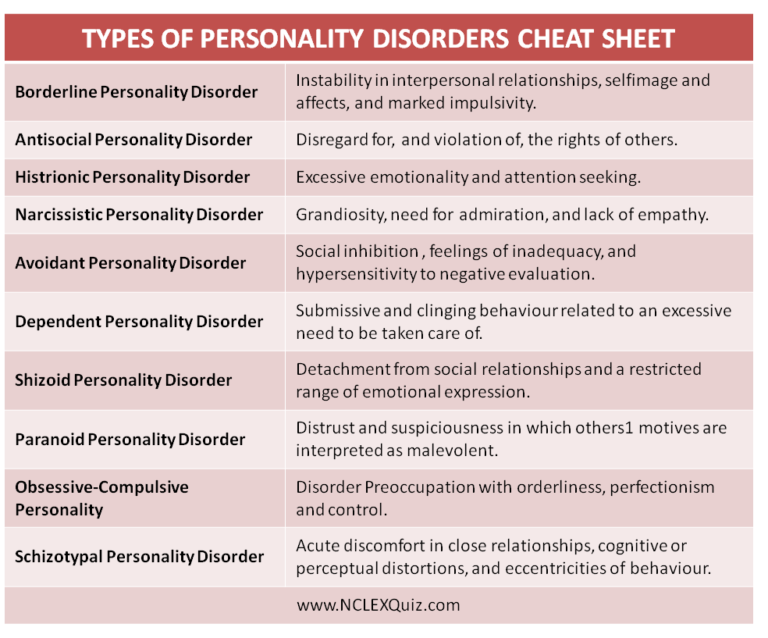
What is narcissism?
This is a feature of the psyche, in which a person considers himself better than others, as well as generally unique and unsurpassed. It's about craving gratitude or admiration, wanting to be the center of attention, and expecting special treatment.
The Narcissistic Personality Inventory (NPI), developed in 1979, is the most common way to measure this trait. The scores range from 0 to 40. Healthy people who score just over half of the scores may seem very attractive, especially during the first meeting, but end up coming off as arrogant. Such people may have uncomfortable or stressful personal relationships, but at the same time they remain fundamentally healthy personalities.
- Honoré Daumier The Belle Narcissus, 1842
Is this normal at all?
Basically yes.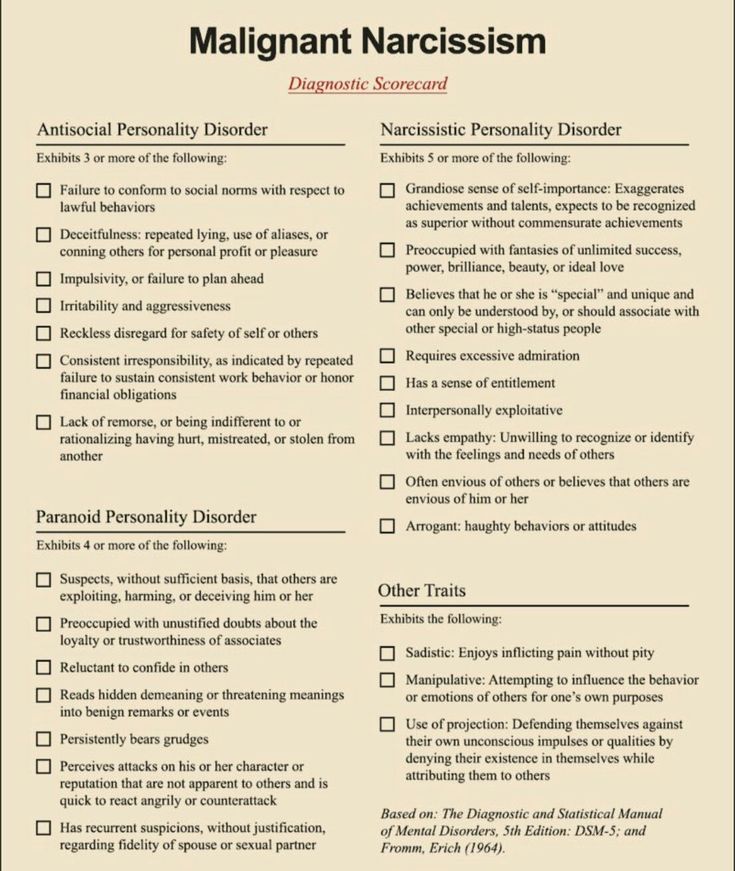 In fact, this is why we use the term “healthy people” in the previous section: narcissism is a collection of traits, and as long as it remains only on the scale of a person’s character, it does not pose a big problem. At least it does not require a decision in the office of a clinical psychologist - unlike narcissistic personality disorder.
In fact, this is why we use the term “healthy people” in the previous section: narcissism is a collection of traits, and as long as it remains only on the scale of a person’s character, it does not pose a big problem. At least it does not require a decision in the office of a clinical psychologist - unlike narcissistic personality disorder.
What is Narcissistic Personality Disorder?
And this is a psychiatric diagnosis. People with narcissistic personality disorder (NPD) are in love with an idealized grandiose image of themselves. And they fall in love with this exaggerated self-image precisely because it enables them to avoid deep feelings of insecurity. But supporting their megalomaniacs takes a lot of work, and that's where manipulation and toxicity in relationships comes into play. People with narcissistic personality disorder are self-centered, lack empathy and consideration for others, and depend on praise and hobbies. They can be described as cocky, manipulative, selfish, and overly demanding.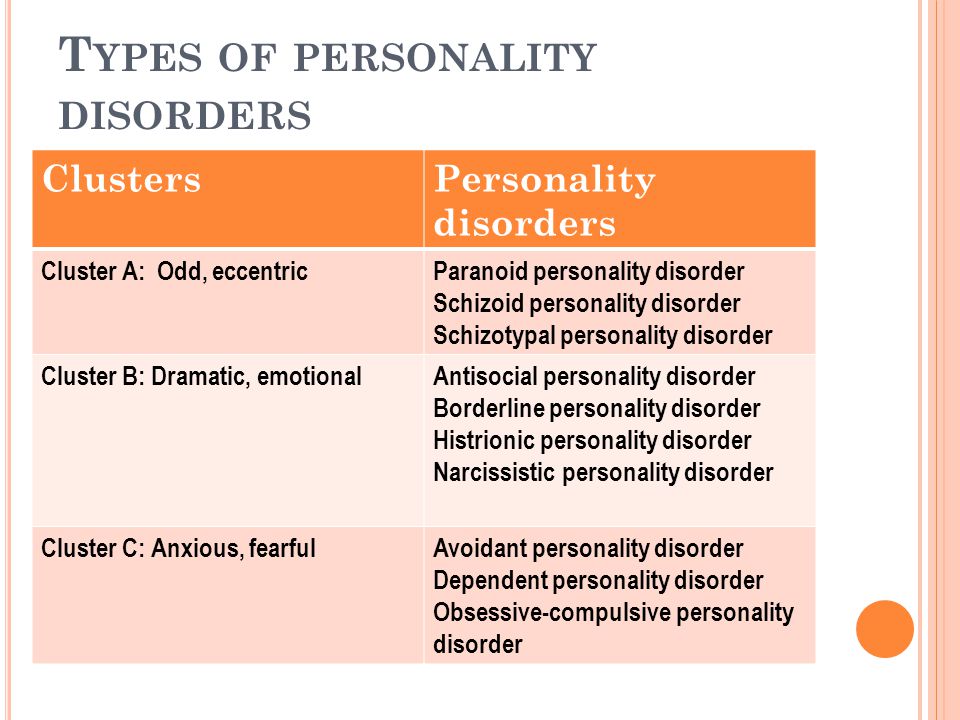 This way of thinking and behaving manifests itself in all areas of a narcissist's life, from work and friendships to family and love relationships.
This way of thinking and behaving manifests itself in all areas of a narcissist's life, from work and friendships to family and love relationships.
There are many subtypes of NPD—some have been identified and validated by scientific research, while others have been informally named and popularized by various mental health professionals. Because of this, the number of narcissistic subtypes is difficult to count accurately. Although the subtypes cannot be clinically diagnosed, professionals still usually see patterns in the behavior of clients, so they deduce eight subtypes of narcissism.
- Salvador Dali Metamorphoses of Narcissus, 1937
Healthy narcissism. It is more positive than negative. The American Psychiatric Association has concluded that for a patient to be clinically diagnosed with narcissistic personality disorder, they must have at least 55% of the most common features of narcissism.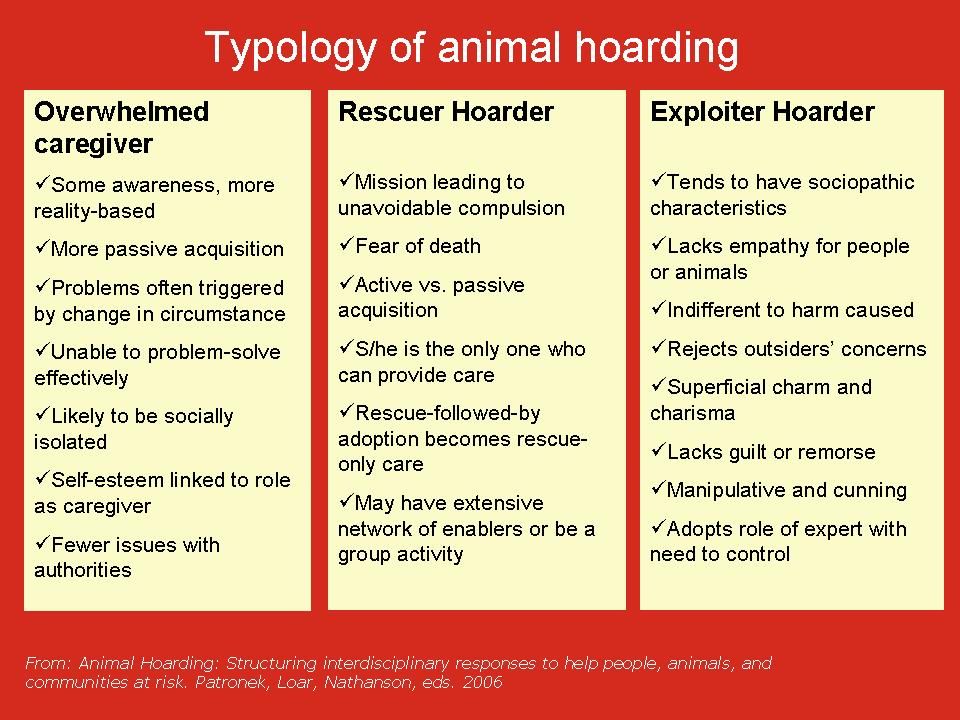 At the same time, many of these features do not fit the classification of mental disorders. That is, if you have less than 55% of the signs of NPD, you are healthy. Psychiatrists believe that narcissistic qualities are inherent in any person to a certain extent. Recognition of your achievements, the desire to share them and receive praise are quite normal things, especially if they improve well-being.
At the same time, many of these features do not fit the classification of mental disorders. That is, if you have less than 55% of the signs of NPD, you are healthy. Psychiatrists believe that narcissistic qualities are inherent in any person to a certain extent. Recognition of your achievements, the desire to share them and receive praise are quite normal things, especially if they improve well-being.
Grandiose narcissism. Such patients are characterized by an overestimation of their abilities, an inflated sense of self-worth and, in fact, an unrealistic feeling of their own superiority over other people. At the same time, grandiose daffodils can be charming, but they often lack compassion. They demand attention, they like to see others offended and confused.
Covert/vulnerable narcissism. Unlike grandiose narcissists, these people tend to be shy and modest. Representatives of this subtype are inhibited, depressed, hypersensitive to evaluations and suffer from chronic envy. They vitally need the recognition of people and protection from criticism. Often covert narcissists feel the most miserable in the world.
They vitally need the recognition of people and protection from criticism. Often covert narcissists feel the most miserable in the world.
Malignant narcissism. Actually they are called malignant, not to be called evil, because it sounds a bit rude. But it is true: they are manipulators with evil intentions, showing signs of sadism and aggression. This is the most dangerous and harmful to others subtype. Throughout their lives, people suffering from this disorder improve their manipulation skills, and therefore, during the first meeting, they may seem very nice and kind.
Sexual narcissism. These patients are overly fond of their own sexual prowess. They may be obsessed with their sexual activity and need for sexual delight from others. Sexual narcissists are serial scammers who use sex to manipulate people and can be aggressive in bed.
Somatic narcissism. Somatic narcissists base their self-esteem on the body. They feel more beautiful, strong or healthy than others.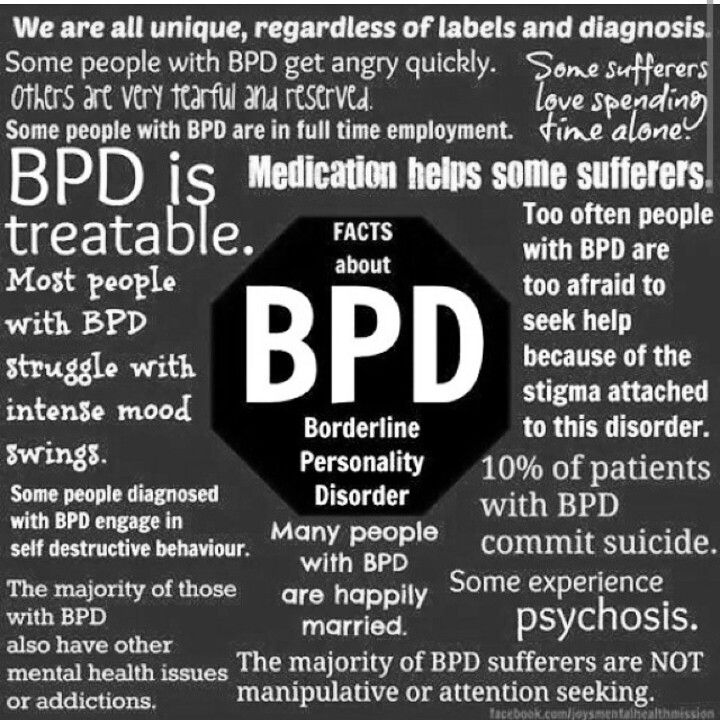 Somatic narcissists are often obsessed with their weight and appearance, as well as criticizing the appearance of others.
Somatic narcissists are often obsessed with their weight and appearance, as well as criticizing the appearance of others.
- Illustration for "Spring of Narcissus" from "The Romance of the Rose", 1380s
Cerebral/intellectual narcissism. Such people derive their sense of self-worth from their minds. It is about the belief that they are smarter than everyone else. To feed their ego, they will try to make others feel stupid.
Spiritual narcissism. Such people often use their spirituality to justify harmful behavior and use spiritual jargon to present themselves in a better light and to show superiority. Often they use vulnerable people to make them believe in their own worthlessness and in the high spirituality of the narcissist himself.
I have NRL. What threatens me?
Narcissists find it difficult to build healthy social bonds. Since the narcissist is overconfident and believes that he is better than others, this can lead to risky behavior. At the same time, such people usually show low levels of empathy, sympathy, shame, and guilt. That is why narcissism does more harm to those who surround the narcissist.
How do I know if I'm talking to a narcissist?
There are the most common and recognizable signs. Remember that only a specialist can make an accurate diagnosis. However, you will need these characteristics to identify such a person in your environment and build a relationship with him that will not harm you.
The main signs of daffodils
- Sensation of its own superiority over the other
- Manipulative behavior
- The need for
- Sympathy
- Higher -dimensional
- concentration of the surrounding
- Updrospital sensitivity to criticism
How to deal with narcissists?
The first thing to advise is to break off relations with narcissists, since they are not non-toxic.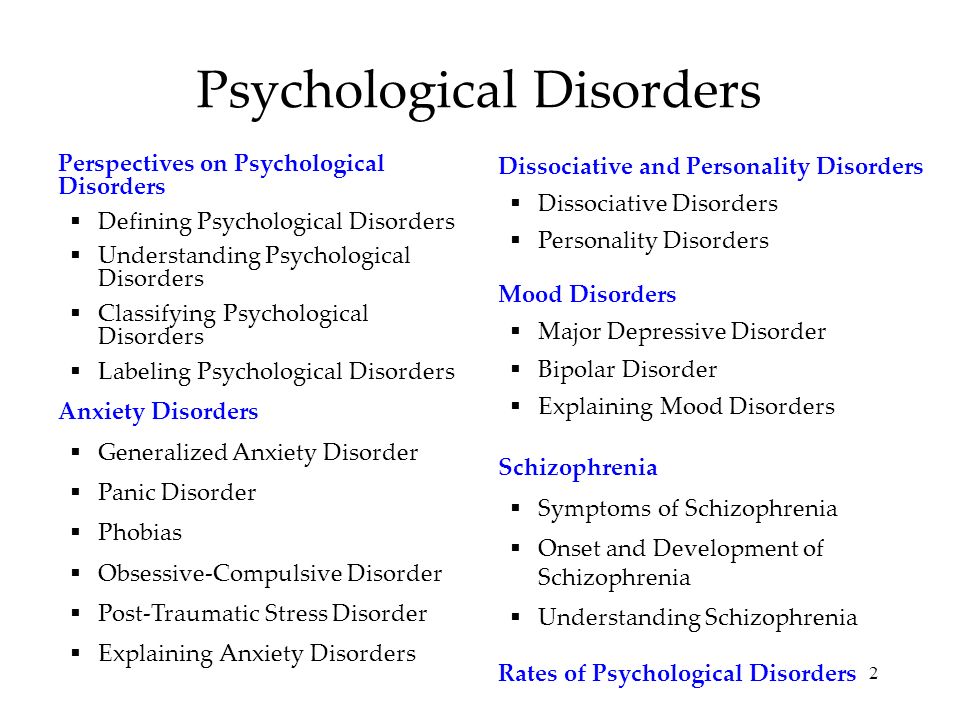 But there are many situations in which this advice will not work. There are several leading techniques that will help you protect yourself from the influence of such people and build safe communication with them.
But there are many situations in which this advice will not work. There are several leading techniques that will help you protect yourself from the influence of such people and build safe communication with them.
Look at the root - Narcissists often try to create an ideal image of themselves. But if you always keep in mind who they really are and remember that they can manipulate or deceive, you will probably not be affected by their "charm".
Talk about yourself and your feelings. This rule works if we are talking about a person from your close circle - a partner or someone from relatives. Narcissists often like to bring the interlocutor to emotions - do not let them do this, do not encourage their behavior. Instead, try to calmly and kindly say what you don't like. Do not blame - use "I-messages": not "you talk a lot about yourself", but "I would like it if you were more interested / interested in my affairs."
But if you notice signs of narcissism in your manager or work colleague, the best way to communicate is not to show emotions and not get into conflicts and arguments, because most likely the person is just waiting.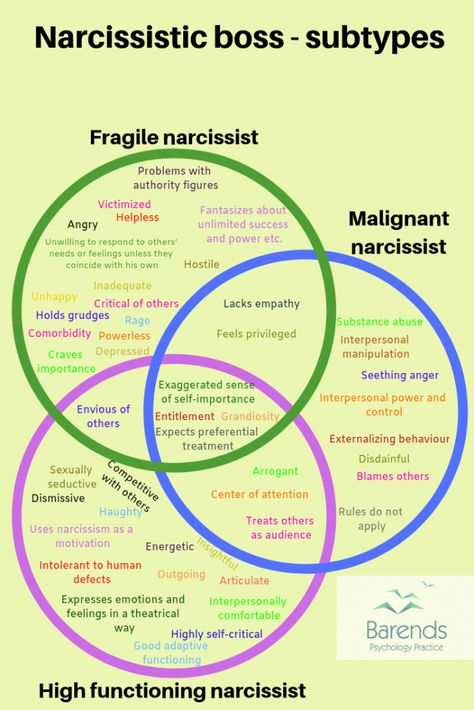 If you give him this, then you will stimulate such behavior in the future.
If you give him this, then you will stimulate such behavior in the future.
- Caravaggio. Narcissus, 1594-1596
Stand up for clear boundaries. People with narcissistic personality disorder have a poor sense of personal space and boundaries: they may rummage through your belongings, enter your personal space without permission, or do something that will disturb you. In this case, psychologists advise setting ultimatums. For example: "If you don't get your car out of my parking space, I will have to call a tow truck." But at the same time, it is important to keep your promise in order to prove the seriousness of your intentions.
Do not fall for provocations. If the game doesn't go their way, narcissists often manipulate to make you feel awkward.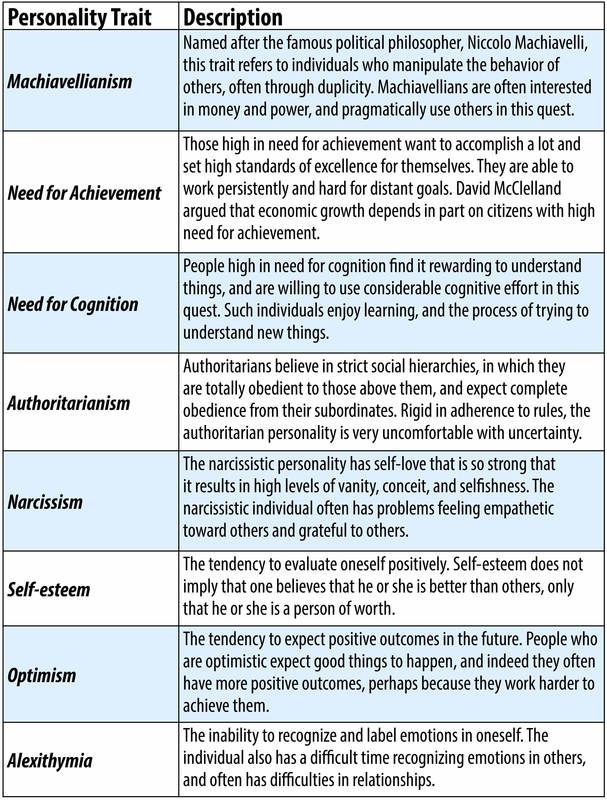 For example, they may try to make you feel guilty or ashamed. Remember that these are just their rules of the game: you don't have to accept them.
For example, they may try to make you feel guilty or ashamed. Remember that these are just their rules of the game: you don't have to accept them.
Find a source of energy. Communication with a narcissist (especially if it is a malignant narcissist) is very emotionally draining. It is necessary to constantly remember all possible scenarios for the development of events and resist manipulation - this requires considerable effort. To recover quickly, you need a source of energy: start going to sports or art classes, communicate more with people with whom you are pleased and comfortable.
Is it treatable at all?
Yes, psychotherapy. But there is a very important detail: in order to start treatment, the patient's desire is necessary. More often than not, narcissists either don't acknowledge their problem or get carried away by the fact that they are narcissists. However, psychiatrists argue that people with NPD often have problems with socialization, and sometimes this behavior is associated with moral trauma. Therefore, the likelihood that a person will reach a therapist is still there.
Therefore, the likelihood that a person will reach a therapist is still there.
Narcissists: who are they, signs of narcissism, rules of conduct
The article was reviewed and commented by clinical psychologist and researcher Kristina Andreyuk.
- Who is
- How to recognize
- Men and women
- Types
- Treatment
- How to communicate
- How to leave
Who is a narcissist?
Advertising on RBC www.adv.rbc.ru
Narcissism is a feature of the psyche in which a person perceives himself as a unique individual, considers himself better than others, which is not always true. In fact, these traits are present in the character of many people. In a healthy personality, they result in ambition and a desire to please. But under a certain scenario, laid down in childhood, such behavior can turn into a pathology, which is often accompanied by other diagnoses, such as bipolar disorder and depression.
Contrary to popular belief, people with narcissistic personality disorder do not like themselves very much. Rather, they admire their grandiose projection, which allows them to close gaps in their own self-esteem. Such protection allows narcissists to avoid deep feelings and self-doubt. A person with this disorder does not tolerate minimal criticism, he perceives remarks as a personal insult and is able to throw a tantrum if someone refuses to admire him. You can check how narcissistic traits are characteristic of you or your partner using the NPI questionnaire [1]. The more positive answers a person gives to statements from the list compiled by American psychologists and researchers Robert Raskin and Howard Terry, the more narcissistic features appear in him. Meeting people with a true personality disorder is not easy. According to various sources, their number in society varies from 1 to 6%.
How to recognize a narcissist?
According to the American psychiatrists' handbook "Diagnostical and Statistical Manual of Mental Disorders" [2], there are nine signs of narcissistic personality disorder.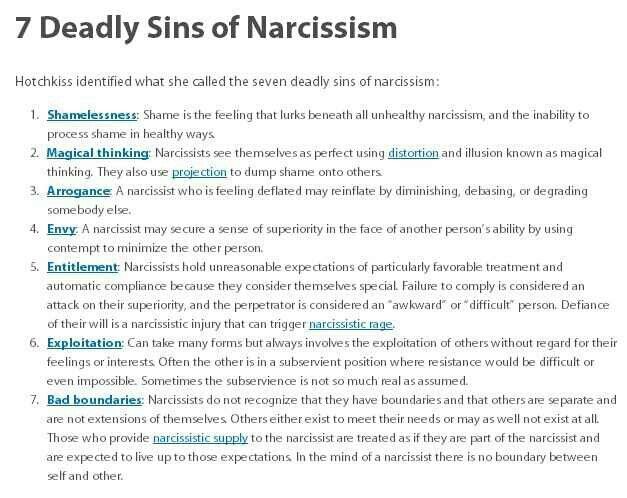 If at least five of these are present, a doctor may suspect a disorder. Usually such a person:
If at least five of these are present, a doctor may suspect a disorder. Usually such a person:
- Has an inflated sense of self-importance. He often exaggerates his achievements and talents. Expects people to admire his actions, even if they were minor. If the narcissist organized the cleaning of the yard, then at least the district newspaper should write about it.
- Preoccupied with fantasies of unlimited success, power, beauty, or ideal love. To each new partner, the narcissist can say that he is the love of his life or wait for him to fulfill his fantasies. The beginning of such a relationship is a magical, but short period. In work, the narcissist, according to him, is a genius. If he has not been able to achieve great results, he is simply sure that success lies ahead of him, even if it is time for him to retire.
- Believes that he is not like others and has few equals. Therefore, the environment must match. The narcissist chooses “special” people as friends and partners, for example, with high social status or model appearance.
 Thus, he seems to reflect himself through them, because his problems are unique and can only be understood by special people. Narcissists like to be associated with big brands, whether it be in their work projects or clothing choices.
Thus, he seems to reflect himself through them, because his problems are unique and can only be understood by special people. Narcissists like to be associated with big brands, whether it be in their work projects or clothing choices. - Requires constant attention, recognition and admiration, even if you just took out the trash or cooked dinner.
- Absolutely sure that everyone owes him. Expectations for other people are usually very high. Close people are obliged to fulfill the requests of the narcissist at the first call.
- Uses other people to achieve his own goals. For him, it goes without saying. The narcissist is not used to sincerely thanking for services and does it only within the framework of the accepted ethical norm.
- He has difficulty experiencing empathy. Such people are not able to draw a parallel between their feelings and the feelings of others. Therefore, the narcissist does not even think about when he hurts someone. Very often, this behavior is mistaken for abuse by partners of narcissists.
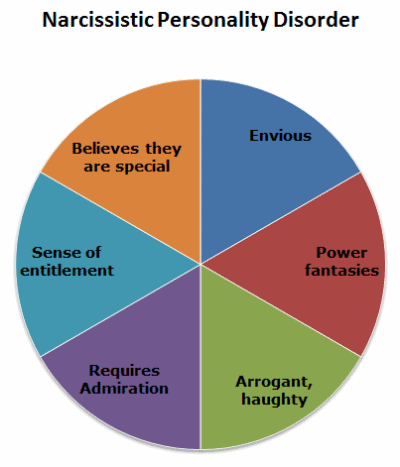 In fact, he may be concerned with how to hide the shame of his failure and not lose his greatness.
In fact, he may be concerned with how to hide the shame of his failure and not lose his greatness. - Often jealous of others and believes that others envy him. In the latter case, it is by this circumstance that the narcissist explains the criticism of others in his address.
- Arrogant towards other people. Such a person absolutely sincerely believes that he is better than others, and other people's shortcomings are an excellent reason to assert himself.
To decide to end a relationship with a narcissist, write down the reasons for breaking up and keep the list with you
© Unsplash
Men and women are narcissists disorder in one form or another, men are more likely to be affected by this disorder than women. The data were collected over a period of 30 years, and the percentage ratio between the sexes did not change much during this time [3].
In doing so, the researchers noted two important points. First, male narcissists were more likely than females to exploit others and believe they were entitled to certain privileges. Secondly, men were more likely to seek power. Scientists explain this by the fact that until recently, leadership qualities did not meet the criteria for femininity. According to one of the authors of the study, Emily Griyalva, girls are more often criticized for aggressiveness and authoritarianism. Thus, society unconsciously suppressed manifestations of narcissistic behavior [4].
Secondly, men were more likely to seek power. Scientists explain this by the fact that until recently, leadership qualities did not meet the criteria for femininity. According to one of the authors of the study, Emily Griyalva, girls are more often criticized for aggressiveness and authoritarianism. Thus, society unconsciously suppressed manifestations of narcissistic behavior [4].
As regards vanity and striving for a vivid self-presentation, in this respect there was no significant difference between men and women.
Types of narcissists and how they are formed
There are different approaches to the formation of narcissism, including studies that allow for genetic influence, but this is not a decisive factor in the formation of personality.
In 1914, Sigmund Freud stated that children somehow go through a stage of primary narcissism. He believed that this was an intermediate stage of growing up, but later he singled out other forms of narcissism, to a greater extent associated with mental disorders.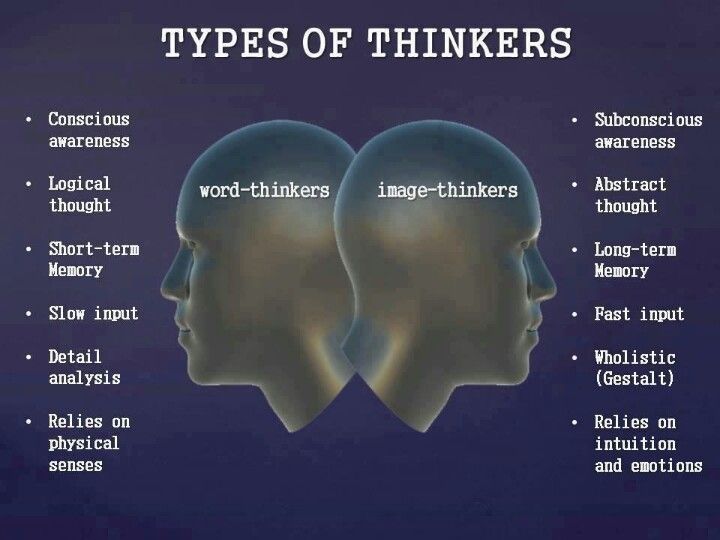
Neuro-Freudian Karen Horney argued that the development of such character traits may be due to the fact that parents in various ways pushed the child to create psychological protection. For example, they could delegate the embodiment of their ambitions or rejected the real manifestations of the child, instilling a sense of inferiority.
The contribution of parental figures to the formation of narcissistic disorder is also noted by psychotherapist and researcher Otto Kernberg. He compares narcissism with a false prop that a person erects in order to receive from others the admiration and confidence that he did not receive from his parents in childhood and cannot give himself in adulthood [5].
In the book of psychologist Elinor Greenberg "Borderline, Narcissistic, and Schizoid Adaptations: the pursuit of Love Admiration and Safety" [6], the author divides narcissists into three types:
- Open, or grandiose. Embodied stereotype. A bright character illustrating this feature of development and behavior.
 His whole being screams, "Look at me." This childish behavior indicates that a person is stuck at an age when adults pay a lot of attention to the child, praise him excessively, suggest that he is special, forgetting to teach him empathy.
His whole being screams, "Look at me." This childish behavior indicates that a person is stuck at an age when adults pay a lot of attention to the child, praise him excessively, suggest that he is special, forgetting to teach him empathy. - Hidden or depressive. Such people can grow up in families where one of the relatives, including mother or father, was a narcissist. At the same time, there was a high level of competition for love and attention. On the one hand, children copied the behavior model of narcissistic parents, on the other hand, such a child formed protective mechanisms, since an adult narcissist would certainly assert himself at his expense. Growing up, such people may not openly say that they are special. They would rather choose a person, a book, an object and exalt their virtues. Thus, the narcissist puts them on a par with himself. In personal relationships, such people do not like direct conflicts. Their weapon is passive aggression. A favorite technique is to promise and not deliver, and then blame the other person for everything.
 They tend to be insecure, and ambivalent behavior often leads them to depression.
They tend to be insecure, and ambivalent behavior often leads them to depression. - Perverse or toxic. Such people go even further. They love not only admiration, but also submission. Narcissists of this type love to wreak havoc around themselves, the same that reigned in their childhood in relationships with their parents. These narcissists often give their partners an emotional rollercoaster of humiliation and praise. They take pleasure in destroying other people's careers, destroying people morally and spiritually.
Mixed representatives of these types also exist.
Treatment for narcissism
Most often, narcissists don't even suspect that something is wrong with them, because they don't tend to blame themselves for anything. So if such people were seen by a specialist, then the reason for this could be related problems: depression, bipolar disorder, or excessive alcohol consumption. There is no cure for narcissism yet. Psychotherapy has a positive effect on such patients. Properly structured classes can help a person establish relationships with loved ones, learn to withstand criticism, stop despising themselves and others, set realistic goals and achieve them, and not dream of sky-high heights [7].
Properly structured classes can help a person establish relationships with loved ones, learn to withstand criticism, stop despising themselves and others, set realistic goals and achieve them, and not dream of sky-high heights [7].
Although there is no cure for narcissism yet, psychotherapy has a positive effect
© Thiago Matos / Pexels
How to communicate with a narcissist?
Building an even relationship with a narcissist is not always easy. Some prefer to just cut them off. But what if this is not possible? Let's say that person is a family member or ex-husband/wife with whom you have children in common.
- The first thing psychologists advise is to try to detach yourself emotionally. Ignore toxic statements and manipulations. It is useless to expect sudden changes in behavior from such people. According to research, narcissists do not tend to learn from their own mistakes simply because they are sure they did not make them [8].
- Your personal boundaries are your guard against the actions of a narcissist.
 “This won’t happen to me anymore”, “I won’t fall for these manipulations” - phrases that will help to avoid an unpleasant conversation or intrusive requests of a narcissist. You can't wait for a response.
“This won’t happen to me anymore”, “I won’t fall for these manipulations” - phrases that will help to avoid an unpleasant conversation or intrusive requests of a narcissist. You can't wait for a response. - The shortest possible answers, conditionally "yes" and "no" are your main allies in a dialogue with such a person if he began to resort to manipulation. By minimizing communication, you give him much less reason to hook on to some phrase and launch an attack.
- Stick to the topic of conversation and don't get sidetracked. Perhaps your counterpart will try to knock you out of the saddle with accusations or get personal. In this case, the phrase “We are going off topic” will help bring the discussion back on track.
- Compliments. If you really need to get something out of a narcissist, don't be stingy with praise. Most likely, he will even enjoy fulfilling your request. Yes, this is manipulation, but who said that only a narcissist can use this technique?
How to get away from a narcissist
The end of a relationship is never easy. With a narcissist, breaking up can be doubly difficult. For him, the fact that he was abandoned is an intolerable insult. That is why he will try by hook or by crook to bring the partner back. During this period, he will become sensitive and gentle, will swear eternal love and will do this until his victim loses his vigilance. Often, therefore, relationships with a narcissist develop into a cycle of breaks and reunions. Nevertheless, if you decide to put an end to your communication, psychologists recommend the following:
With a narcissist, breaking up can be doubly difficult. For him, the fact that he was abandoned is an intolerable insult. That is why he will try by hook or by crook to bring the partner back. During this period, he will become sensitive and gentle, will swear eternal love and will do this until his victim loses his vigilance. Often, therefore, relationships with a narcissist develop into a cycle of breaks and reunions. Nevertheless, if you decide to put an end to your communication, psychologists recommend the following:
- Write down the reasons why you want to leave. It's best to keep this list around in case the narcissist decides to drag you back into the relationship by talking about eternal love.
- Give up illusions. It is difficult for such people to change, especially without the help of a specialist. Do you have time to wait until he finally learns to show empathy and respect?
- Break all contacts. Ask a friend to pick up your belongings from the narcissist.
 Block this person in all phones and messengers. If you have children in common, at first ask someone close to you to be with you at general meetings.
Block this person in all phones and messengers. If you have children in common, at first ask someone close to you to be with you at general meetings. - Let go of your feelings. Breaking up, even with a toxic person, is always hard. Give yourself time to get over this situation. Just don't expect the narcissist to suffer in return. Most likely, during this period, he will try to restore his shattered ego and will choose not the most pleasant ways for this: either he will tell everyone what a bad person you are, or seek solace in the arms of someone else.
There are nine signs of narcissism, but five signs can already be suspected of it
© Martino Pietropoli / Unsplash
Kristina Andreyuk, clinical psychologist, researcher. Research interests: mentalization, manipulative behavior, personality disorders
In addition to family relationships, external factors can also enhance narcissistic traits. Media and social networks broadcast often unattainable ideals, and self-improvement services are imposed by advertising. All this can affect the psyche.
All this can affect the psyche.
In "normal narcissism" people try to please others, to achieve success in their work, which helps them to adapt in society. However, in the case of pathology, a person's ideas about themselves are distorted. In this case, the emphasis is on the grandiosity of his figure. He experiences difficulties in forming adequate ideas about other people, abuses manipulations, grossly violates the boundaries of the interlocutor and ignores his comfort. Narcissistic features can manifest themselves in pathological perfectionism, hypochondria, constant attempts to correct their "flaws", including, for example, transforming one's appearance as the most noticeable attribute of self-presentation for others.
On the surface, narcissists give the impression of being rather pleasant people. According to research, many socially active narcissists have charisma, know how to hold an audience, are not afraid to express themselves, appear self-confident, and have high claims regarding academic and professional achievements.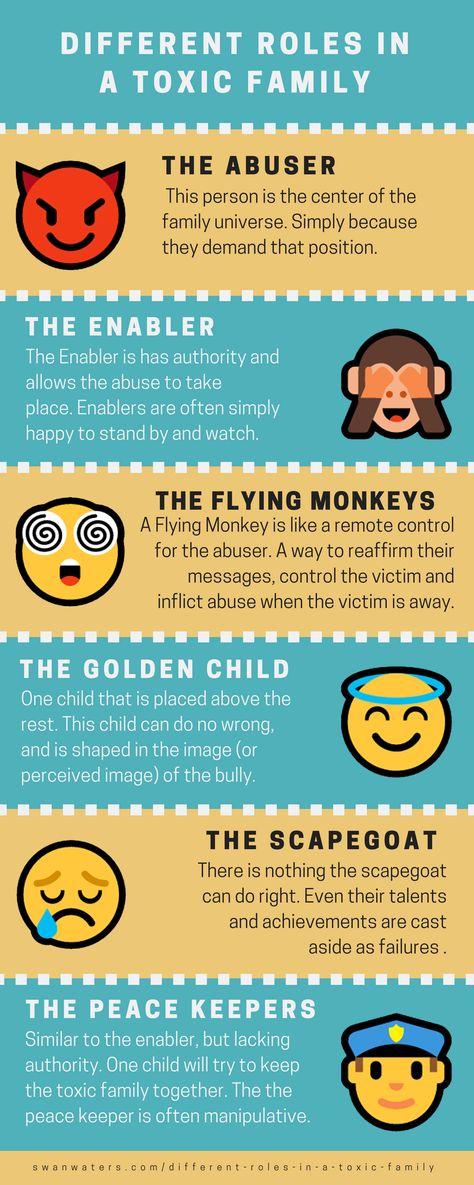 These qualities often show up in job interviews and help narcissists get into leadership positions. However, such bosses may use too subjective criteria when evaluating employees, focusing not on their professional achievements, but on the degree of admiration, devotion, and the absence of doubts about the correctness of the leader's decisions.
These qualities often show up in job interviews and help narcissists get into leadership positions. However, such bosses may use too subjective criteria when evaluating employees, focusing not on their professional achievements, but on the degree of admiration, devotion, and the absence of doubts about the correctness of the leader's decisions.
Close relationships are difficult for narcissists. In partners and friends, they are primarily looking for confirmation of their exclusivity, superiority (which reinforces vulnerable self-esteem). Often, such people confuse the attachment that accompanies healthy partnerships and collaborations with the addiction that can shackle and inspire fear. The demands of constant adoration and recognition of their grandiosity, which the narcissist often implements in the form of excessive control over the thoughts and feelings of a partner, in most cases, sooner or later are not fully satisfied, which leads to conflicts and increased manipulative behavior.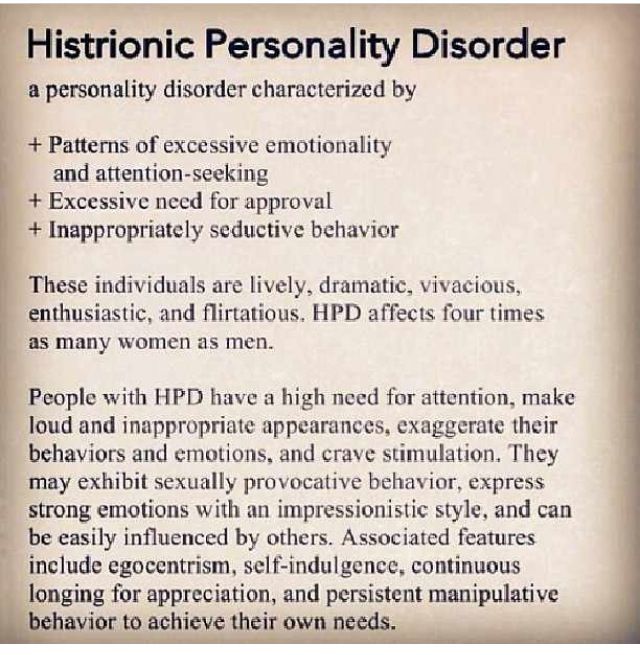
If you have found any manifestations of narcissistic traits in yourself and want to change them, then it will be useful for you to develop the skills of self-reflection, mentalization (understanding mental states), work on the development of emotional intelligence, empathy (for example, discuss with friends the films you have watched, read books in terms of understanding the inner world of the characters, their motivation, etc.). It is very important to learn to analyze what is happening from different positions, without sliding into extreme points, such as, for example, idealization and depreciation - look for alternative explanations. Try to look at situations or actions from different angles, noting the possible positive aspects of seemingly negative events, including during conversations with loved ones.
If your loved one has narcissistic traits, you need to learn how to track the emotional states of both you and your interlocutor. It is necessary to soberly analyze situations of interpersonal communication.